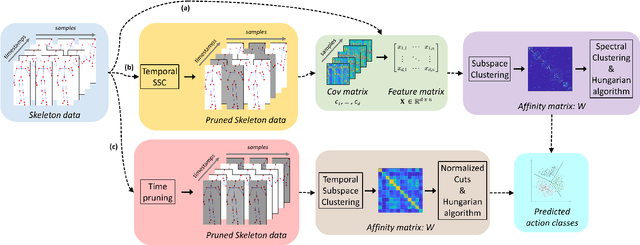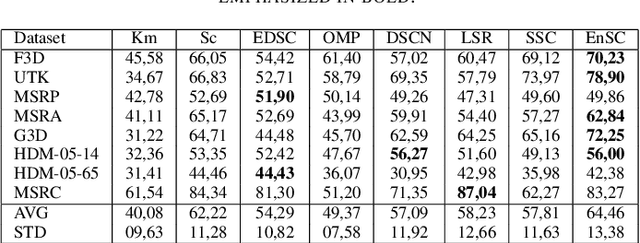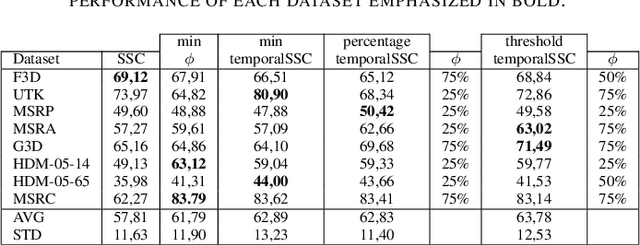Subspace Clustering for Action Recognition with Covariance Representations and Temporal Pruning
Paper and Code
Jun 21, 2020



This paper tackles the problem of human action recognition, defined as classifying which action is displayed in a trimmed sequence, from skeletal data. Albeit state-of-the-art approaches designed for this application are all supervised, in this paper we pursue a more challenging direction: Solving the problem with unsupervised learning. To this end, we propose a novel subspace clustering method, which exploits covariance matrix to enhance the action's discriminability and a timestamp pruning approach that allow us to better handle the temporal dimension of the data. Through a broad experimental validation, we show that our computational pipeline surpasses existing unsupervised approaches but also can result in favorable performances as compared to supervised methods.
 Add to Chrome
Add to Chrome Add to Firefox
Add to Firefox Add to Edge
Add to Edge